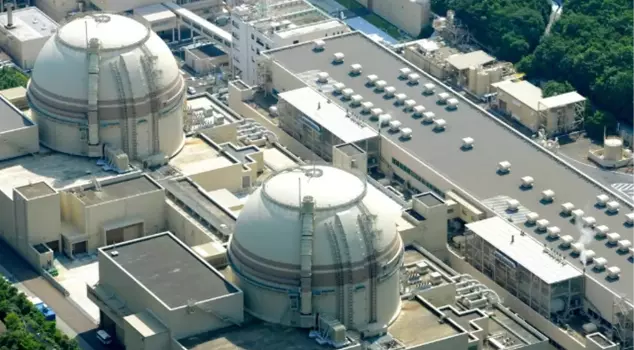
13.04.2014 05:20
The Japanese government has decided not to phase out nuclear power. But a fast turnaround in energy policy is also not possible, even if only a third of the nuclear reactors will be restarted again.
The Japanese government has decided not to phase out nuclear power. But a fast turnaround in energy policy is also not possible, even if only a third of the nuclear reactors will be restarted again.
Japan's conservative government has drawn different conclusions from the Fukushima disaster than did the German government, which chose to phase out nuclear power. Its new energy plan, which Shinzo Abe's Liberal Democratic Party (LDP) cabinet approved on Friday (11.04.2014), calls nuclear power the country's most important power source.
This reverses the decision of the previous Democratic Party of Japan government of Yoshihuiko Noda to phase out of the nuclear power program by 2040. "The new energy plan makes possible a realistic and balanced energy structure," Industry Minister Toshimitsu Motegi said in Tokyo.
But the nuclear power plants will have to meet tighter safety requirements. The government wants to allow the operation of power plants classified as safe by the reformed Nuclear Supervisory Authority. The first two reactors could gain approval before summer.
A majority of Japanese oppose nuclear power, according to polls. But this has had no effect on any elections since the Fukushima disaster. With the new energy plan the government satisfies the wish of the economy to use nuclear power as reliable energy source.
New nuclear reactors possible
The new policy also allows the construction of new nuclear reactors. The government will determine the necessary amount of nuclear power, the paper says. But analysts doubt that it is possible to push through the construction of new reactors. They would have to be build at places where nuclear power plants already exist due to public reluctance.
The energy market is to be liberalized by the end of the decade and that could make the construction of new reactors too expensive. And the future of the decommissioned reactors also looks bleak.
Since last summer the eight electricity suppliers asked the Nuclear Supervisory Authority for permission to restart only 17 of the 48 reactors. Another 14 reactors are heavily disputed politically. There is widespread public rejection of any attempt by operator Tepco to restart Fukushima 2. The Hamaoka nuclear complex with three reactors is located in a heavily populated area in an earthquake zone. The remaining 17 reactors won't ever go in operation again because security retrofitting won't pay off due their age.
No targets yet
The government refuses to say what mix of energy sources it is aiming for, due to this uncertainty. It will decide this in the next two or three years. Analysts doubt that nuclear power will amount to more than 10 percent of energy usage. It thus can't be called a "major" power source.
Hence Japan will have to continue importing expensive fossil fuels, which will account for 80 percent of energy production. But Japan's government is sticking with the plan to reprocess uranium - and plutonium - as fuel. The experimental fast reactor in Monju will be abandoned, but the facility will be developed into a research reactor to reduce nuclear waste.
The reprocessing plant in Rokkasho will start to operate in the autumn after many delays. Originally it was the centerpiece of a closed cycle for plutonium and uranium that would have made Japan energy self-sufficient by 2100. But reprocessing of plutonium and uranium does not make sense without a fast reactor.
"This policy is not reasonable because it does not go beyond reprocessing," said Taro Kono, spokesmann of the LDP's anti-nuclear movement. Neighboring countries like China will also ask why Japan is producing plutonium, he said.
Where are the renewables?
Prime Minister Abe shows little ambition in renewable energies. Behind the scenes the LDP and its coalition partner, the Buddhist New Komeito Party, have demanded targets for "green" energy sources. New Komeito promised in its election campaign that the electricity share of renewable energies will be 30 percent in 2030 without hydropower and 35 percent with.
At present, the energy plan only says that the share of green electricity will go beyond previously announced targets. The earlier plan said green energy would make up 20 percent by 2030. That would be a modest doubling over one and a half decades.
Currently 1.6 percent of Japan's energy comes from wind, solar and biomass, with another 8.4 percent from hydropower. These low numbers also prove that a fast turnaround in energy policy like in Germany is not possible in Japan.